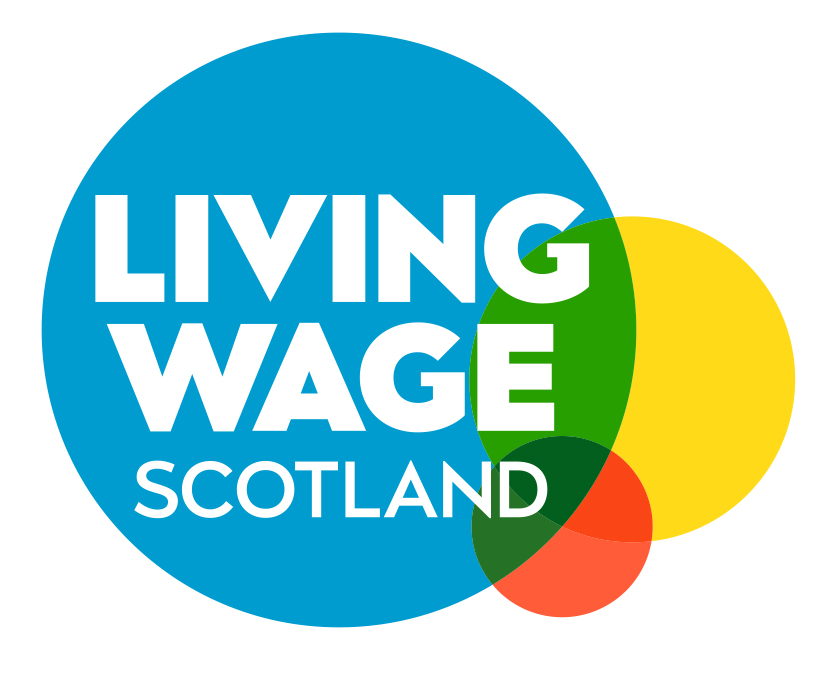The Edinburgh Living Wage Action Group was established in 2021 with the aim of building the Living Wage movement in Scotland’s capital city.
As part of their Living Wage Week celebrations, they spoke with several employees from the members of the Action Group to learn about how being paid the real Living Wage has benefitted them as individuals.
Mercat Tours have been an accredited Living Wage employer since 2016. They are the first and largest Living Wage walking tour company in Scotland. Providing History Walks and Ghost Tours across several of Edinburgh’s most famous sites. In 2024 Mercat Tours took their commitment a step further and became the first tourism employer to gain Living Hours accreditation, offering security of hours alongside a real Living Wage.
City of Edinburgh Council have been a long-time supporter of the real Living Wage, since their accreditation in 2016 they have been a committed champion of the movement taking a key role in the formation and launch of the Making Edinburgh a Living Wage City action group.
Read on to find out how payment of the real Living Wage can make a difference to the lives of workers.
Rory, Support Team Leader at Mercat Tours
Rory has been with Mercat for just over three years. His role is varied covering tasks such as overseeing a daily shift to taking bookings and providing support to visitors. Rory says that the best things about the role are his colleagues and getting the chance to meet “new people from around the world and welcoming them to our city”.
Rory first heard about the real Living Wage movement when he became part of the Mercat Tours team. He feels that paying the real Living Wage is important as it means that employees are paid enough to live on and can enjoy life. This is particularly important given the impact of challenges such as austerity that have had a big impact on society.
Rory thinks that the accreditation is “a hallmark of a forward-thinking business” and gives employees reassurance that their employer is committed to fair pay.
“It’s a comfort knowing that who I work for has an interest in looking after who work for them.”
This investment in employees can also bring benefits to businesses in the long term as “you get what you give”.
However, Rory thinks that there’s always more to be done to create better conditions for workers. Accreditations such as the real Living Wage are an important step, but employers need to go beyond these to improve the quality of life of workers.
“Accolades are all well and good, but once they’ve been achieved, there’s always more than can be done – that’s the sign of a business worth working for. Pay is a central focus and always should be for quality of life, but work/life balance and a stable routine/working pattern can be just as important.”
Aurelia, Senior Finance Assistant at Mercat Tours
Aurelia has been employed by Mercat Tours since 2020 – but her position was never meant to be long-term. She planned to work for a short while to find her feet before getting into teaching but found that she loved the way Mercat Tours treated employees and the positive working environment. As a result, she accepted a permanent position.
“Mercat tours puts its employees first, it is a safe and stable working environment where I felt protected from sudden redundancies” she says.
“Here we are treated with respect and kindness which makes the day to day on the job really enjoyable. The culture of the organisation, and their ethos completely changed my plan. Being paid the real Living Wage is a big part of this as you feel that you are being paid fairly for the work that you do” she tells us.
Aurelia has previously worked for organisations that did not pay the real Living Wage and describes it as difficult. She was underpaid and found it hard to afford to live. Now, she would not want to apply for a job with a company that was not Real Living Wage accredited.
“The real Living Wage is really important”, Aurelia explains. “It shows employees that their time and commitments are valued and that will mean that employees go above and beyond for their employer. Whereas, if you aren’t paid the real Living Wage you are more likely to give the bare minimum as you are getting the bare minimum.”
Barbara, member of the cleaning team at City of Edinburgh Council
Barbara joined the Council as a cleaner 25 years ago. She says that the hours are good and she works 7-11am five days a week. Barbara likes this working pattern as it means she can do other things the rest of the day, particularly in the summer.
When Barbara first joined the Council “it was seen as the best employer in the city – good pay and working benefits, and a secure role.” But she feels that what people want out of a job has changed, because of things like the rising cost of living. “Extra pay makes a massive difference in the short term for people.”
Barbara feels that even though the real Living Wage takes into account the cost of living, it often isn’t enough. This is particularly the case because of Edinburgh being so expensive.
“Having a job is good for you, it’s so important to have a routine and a purpose. Pay is now the main driver for people in making decisions about working and employment.”
“But the pension is also a great benefit of working at the Council. You know that you will have a good pension to retire on in the future, other employers don’t provide such a good pension.”
Barbara likes the security of working at the Council. She has worked in multiple different buildings in her time, but when these have closed down the Council has always moved her to work at a different building rather than her losing her job. She says this makes her feel secure in the role.
“I like how the Council treats employees like people and builds relationships with them, rather than treating them like a number or as disposable.”

